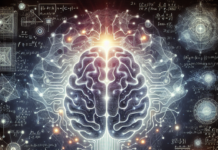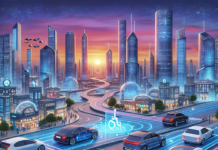Unlocking the Future: How AI is Transforming Everyday Life
In a world increasingly driven by technological innovation, artificial intelligence (AI) stands at the forefront of transformative change. From simplifying daily tasks to reshaping entire industries, AI is not just a futuristic concept; it’s an integral part of our everyday lives. This article explores the myriad ways AI is revolutionizing how we work, communicate, and live.
Redefining Communication
AI has vastly improved the way we connect with one another. Smart assistants like Siri, Google Assistant, and Alexa can schedule appointments, answer questions, and control smart home devices with just a voice command. Natural Language Processing (NLP) algorithms enable real-time translation, breaking down language barriers and making global communication seamless. Messaging apps employ AI to suggest replies, enhancing the speed and efficiency of conversations.
Streamlining Daily Tasks
From personal finance management to grocery shopping, AI algorithms are automating mundane chores. Apps like Mint use AI to analyze spending patterns and provide personalized budgeting advice. In the realm of shopping, platforms like Amazon employ recommendation systems that suggest products based on user behavior, making the shopping experience more intuitive. Meanwhile, smart refrigerators can track food inventory and even suggest recipes based on available ingredients, minimizing food waste and promoting healthier eating habits.
Enhancing Healthcare
The healthcare sector is experiencing a revolution thanks to AI. Algorithms analyze vast amounts of medical data to identify patterns that can lead to personalized treatment plans. For instance, AI-driven diagnostic tools can detect conditions like cancer at earlier stages than traditional methods, potentially saving lives. Virtual health assistants provide patients with information and guidance, helping to alleviate the burden on medical professionals.
Telemedicine, bolstered by AI, allows for remote consultations, making healthcare more accessible, particularly in rural or underserved areas. These advancements not only improve patient outcomes but also streamline administrative tasks, allowing healthcare providers to focus more on patient care.
Transforming Transportation
The transportation industry is on the brink of a seismic shift due to AI. Self-driving technology, spearheaded by companies like Tesla and Waymo, promises to revolutionize commuting and logistics. AI algorithms process data from sensors and cameras, enabling vehicles to navigate complex environments with minimal human input. This technology has the potential to reduce traffic congestion, lower accident rates, and enhance fuel efficiency.
Moreover, AI plays a critical role in optimizing public transportation systems, analyzing user data to improve schedules and routes based on real-time demand, thereby enhancing the commuter experience.
Revolutionizing The Workplace
AI is not merely automating tasks; it is transforming the workplace by enhancing productivity and fostering innovation. Tools like automated chatbots handle customer inquiries, freeing human employees to tackle complex issues that require critical thinking and creativity. Data analytics powered by AI helps organizations make informed decisions, identify market trends, and tailor products or services to meet customer needs.
However, the rise of AI in the workplace has sparked discussions about job displacement. While some roles may become obsolete, AI is also creating new jobs that didn’t exist before, particularly in AI development, data analysis, and tech support.
Personalized Entertainment
AI has dramatically changed our entertainment choices. Streaming services like Netflix and Spotify leverage complex algorithms to analyze user preferences, providing personalized recommendations that enhance viewing and listening experiences. Video games utilize AI to create adaptive environments that respond to player behavior, making gameplay more immersive.
Additionally, AI is being used to generate creative content, from music compositions to visual art, pushing the boundaries of what we consider “human creativity.”
The Road Ahead
Despite the tremendous benefits AI brings to everyday life, it also raises vital questions about privacy, security, and ethics. As we integrate AI deeper into our lives, addressing issues such as data ownership, algorithmic bias, and job displacement becomes increasingly critical.
As we stand on the threshold of a new era, it’s clear that AI is not just a tool but a key that unlocks solutions to some of society’s most pressing challenges. By harnessing its potential responsibly, we can create a future that benefits everyone, paving the way for an efficient, interconnected, and harmonious world.
In conclusion, the journey of AI transforming everyday life is just beginning. As technology continues to evolve, the opportunities are boundless, and the future promises to be as exciting as it is unpredictable. Embracing these changes with an open mind will be crucial as we navigate this brave new world.
More related- Revolutionizing Reality: AI Takes the Wheel in Shaping Our Daily Lives







